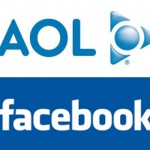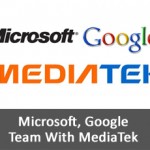 New York — The Redmond, Wash., software maker Microsoft Corp., Tuesday forged a partnership agreement with New York-based Interpublic Group, an advertising and marketing service provider, under which Interpublic Group will adopt Microsoft’s Atlas as a preferred ad-server solution for IPG entities.
New York — The Redmond, Wash., software maker Microsoft Corp., Tuesday forged a partnership agreement with New York-based Interpublic Group, an advertising and marketing service provider, under which Interpublic Group will adopt Microsoft’s Atlas as a preferred ad-server solution for IPG entities.
The Redmond Vole is getting cozier with Madison Avenue in a deal that will make Microsoft the go-to ad technology provider for the U.S. offices of ad giant’s agencies, including McCann-Erickson, Deutsch, Hill Holliday and The Martin Agency, heightening the rivalry between Microsoft-Google.
Microsoft, reduced its undisclosed pricing for Atlas so that it will become the preferred option to deliver ads and analyze their performance.
Abandoning an initial goal to make Atlas an end-to-end solution, Microsoft has been “trying to break apart” the product to make it extensible, according to Randy Wootton, Microsoft Advertising’s general manager of U.S. specialist sales. Doing this has made it easier to integrate Atlas with SharePoint and other Microsoft offerings, he said.
Microsoft stated that it would reap benefit from increased opportunities with this alliance between the two companies. The agreement covers Interpublic Group or IPG’s North American agencies and puts into place preferred pricing agreements for Atlas enterprise technology for IPG clients.
Scott Howe, corporate vice president of Microsoft’s Advertiser & Publisher Solutions group, commented, “This development demonstrates that in the rapidly changing world of digital marketing, Microsoft is deepening its relationships with ad agencies, and that we are walking the talk when it comes to partnering with agencies for the benefit of their clients.”
“IPG has long been regarded as a leader in the advertising industry, and to be designated as a preferred ad-serving partner in North America is absolutely remarkable that we are extremely proud of,” said Howe.
With the partnership in place, Microsoft stands to obtain more business from IPG that manages an estimated $30 billion in global media billings for their clients. Through engagement mapping, it will provide advertisers with an analysis of ad performance, from a consumer’s first click to their final buy. It will also give IPG the opportunity to build custom applications for individual agency clients, which include Coca-Cola, Volkswagen, Wal-Mart and Dunkin’ Donuts.
“One thing advertisers are starting to get is, ‘Gosh, we have put a bunch of money into IT and we already use a bunch of Microsoft stuff, so having the ad platform tied-in with that will make it an integrated piece of the IT stack,’” said Wootton. Incorporating Atlas with other Microsoft products, such as SharePoint, could bring companies “a lot of efficiency and better bang for the buck,” he suggested.
Under the new partnership, advertisers will retain the right to specify Google or another ad-server system instead of Atlas, Wootton said.
Atlas technology is designed to manage ad campaigns across search, display, and rich media including video. Atlas data management capabilities through its proprietary engagement mapping technology are pretty impressive, open platform for integrated reporting with media specialty companies and the ability to integrate ad-serving technologies with other technologies offered by Microsoft.
Microsoft and IPG are initially unwinding Atlas to North American agencies. The roll-out includes educational offerings such as webinars and in-person demos. Microsoft bought Atlas in 2007 when it purchased aQuantive. It was basically Microsoft’s answer to Google’s DoubleClick acquisition.
Microsoft would not disclose financial details about the partnership other than to say it “puts into place preferred pricing agreements for Atlas enterprise technology for IPG clients.”
The deal enable Microsoft to put on “tour” showcasing its advertising wares to IPG agency executives, meetings that are traditionally “tough to get,” Wootton noted. “When you have the support of a strategic partnership behind you, those heads of agencies and subsidiary agencies take that call and are open to it in a different way than if I were just knocking on their doors.”


